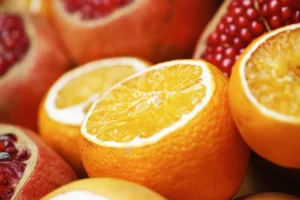
In recent years, both veganism and the keto diet have gained significant popularity for their numerous health benefits. While traditional keto diets heavily rely on animal products, the vegan keto diet offers a plant-based alternative. This article will explore the fundamentals of the vegan keto diet, its benefits, challenges, and effective strategies for balancing macros and nutrition.
What is the Vegan Keto Diet?
The vegan keto diet combines the principles of the ketogenic diet with a strict plant-based approach. It focuses on consuming low-carb, high-fat, and moderate-protein foods while avoiding all animal-derived products such as meat, eggs, dairy, and honey.
Benefits of the Vegan Keto Diet
1. Weight Loss: Similar to traditional keto diets, the vegan keto diet can promote weight loss by inducing ketosis. Ketosis is a metabolic state in which the body starts burning stored fat for energy instead of carbohydrates. By restricting carbohydrates and increasing healthy fats, the vegan keto diet can aid in shedding excess pounds. 2. Blood Sugar Control: By eliminating high-carb foods, the vegan keto diet can help stabilize blood sugar levels. This can be particularly beneficial for individuals with diabetes or insulin sensitivity. 3. Increased Energy Levels: Once the body adapts to using fat as the primary fuel source, many people experience a boost in energy levels. This sustained energy can help improve overall vitality and athletic performance.
Challenges of the Vegan Keto Diet
While the vegan keto diet offers numerous benefits, it does come with certain challenges. As it eliminates major food groups like animal products and many high-carb plant foods, it requires careful planning to ensure adequate nutrient intake. 1. Protein Deficiency: One of the biggest challenges on the vegan keto diet is getting enough protein. Plant-based protein sources often come with some level of carbohydrate content, making it crucial to choose foods wisely to avoid exceeding daily carbohydrate limits. 2. Nutrient Deficiencies: Without careful planning, the vegan keto diet may result in potential nutrient deficiencies, particularly in essential vitamins and minerals such as B12, iron, calcium, and omega-3 fatty acids. Supplementation and a varied diet are essential to address these deficiencies.
How to Balance Macros and Nutrition on the Vegan Keto Diet
1. Focus on Healthy Fats: Since the vegan keto diet relies heavily on fats, it’s crucial to choose healthy options such as avocados, nuts, seeds, coconut oil, and olive oil. These fats provide necessary energy and promote satiety. 2. Incorporate Protein-Rich Foods: While plant-based proteins may contain some carbs, incorporating protein-rich foods like tofu, tempeh, edamame, seitan, and plant-based protein powders can help meet protein needs while keeping carbohydrates in check. 3. Opt for Low-Carb Vegetables: Non-starchy vegetables like leafy greens, broccoli, cauliflower, zucchini, and bell peppers are excellent choices. These veggies are low in carbs and high in fiber, contributing to a well-balanced vegan keto diet. 4. Monitor Carbohydrate Intake: Keeping track of carbohydrate intake is essential on the vegan keto diet. Aim for a daily carb intake of around 30-50 grams, focusing on complex, fiber-rich sources like chia seeds, flaxseeds, and psyllium husk. 5. Supplementation: Due to the limited availability of certain nutrients in plant-based foods, consider supplementing with vitamins B12, iron, omega-3 fatty acids, and calcium to maintain optimal health.
In Conclusion
The vegan keto diet provides a unique approach to combine the benefits of veganism and the ketogenic diet. While it may present challenges in meeting nutritional needs, careful planning can help ensure a well-rounded diet. By focusing on healthy fats, adequate protein, and nutrient-rich food sources, individuals can successfully balance macros and nutrition on the vegan keto diet.

